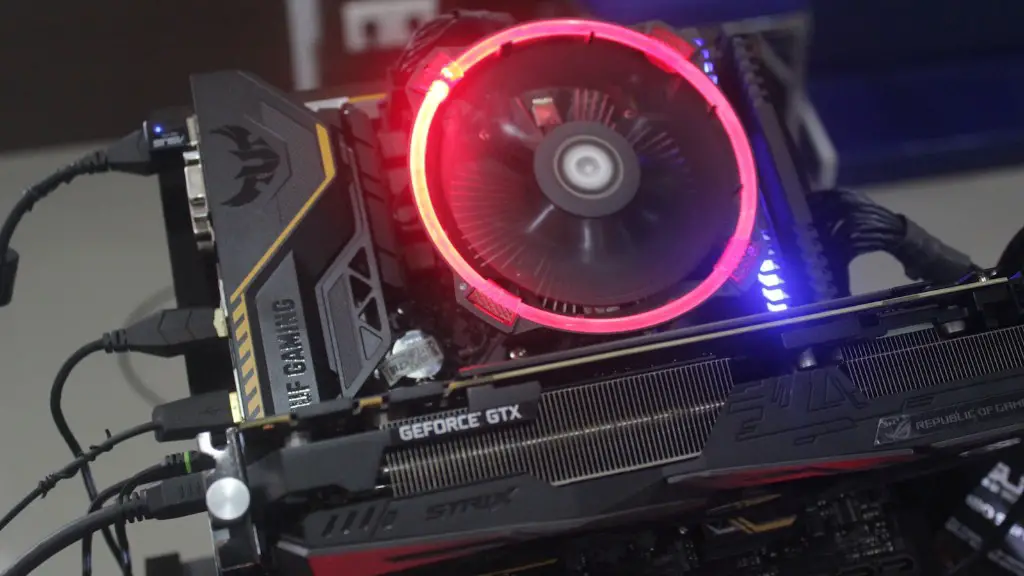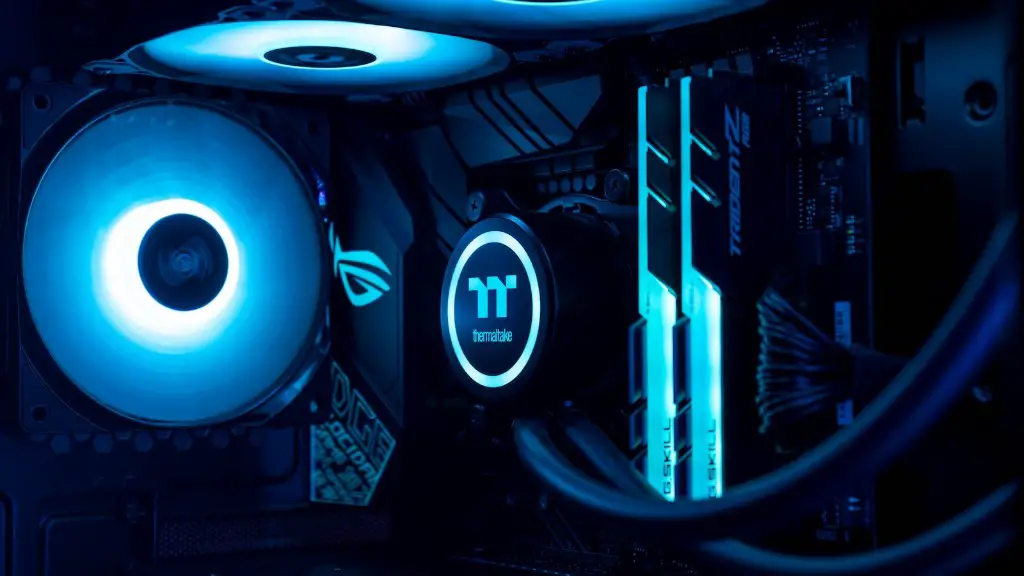When it comes to building or upgrading a gaming PC, one of the important hardware specifications is its power supply unit (PSU). One of the common questions people ask is “Is 550 watts enough for a gaming PC?” In this article, we will explore the answer to this question and cover related topics.
A gaming PC requires a significant amount of power to run all its components. The most important factor when considering what size of power supply is needed is the overall power draw. The power draw of a gaming PC depends on its included components and their power requirements. Fortunately, there are useful resources such as calculators and power supply wattage recommendations available to help determine the required wattage.
In general, a gaming PC equipped with a mid-range GPU and CPU can usually run on a 550 watt PSU. That said, it is important to ensure that the intended components are selected as accurately as possible when using this calculator/recommendation tool so as to ensure the accuracy of the output.
It should also be noted that users who intend to construct system with high-end components and may want to consider using a higher wattage PSU than what the calculator/recommendation tool may indicate. This allows for some room for future hardware upgrades such as additional GPUs and other hardware.
It is also important to consider other factors such as build quality of the PSU, certifications and compatibility. A higher quality PSU is generally able to handle mild to moderate overclocking scenarios and could prove to be more reliable over the long run. Taking into considerations all the factors involved, it is generally recommended to opt for a tier 1 or tier 2 power supply for maximum performance and reliability.
That being said, only the user can decide what their power requirements are in order to make a good decision when considering a PSU. Even though 550 watts may be sufficient in most cases, users may want to ensure that the selected PSU has enough wattage to support their current components and potential future upgrades.
What Power Supply is Needed for a High-end Gaming PC?
A high-end gaming PC with high-end components such as a powerful GPU and CPU would usually require a higher wattage power supply than a mid-range gaming setup. The overall power draw of the system would dictate what power supply unit is required to properly power the components. Factors such as multiple GPUs, overclocking capabilities, and wattage of the components all influence the wattage required for a high-end gaming setup. In general, a minimum of around 650 watts is required for a high-end gaming system.
The power draw of each component must be taken into consideration when selecting the appropriate PSU. Users are encouraged to use either calculators or power supply recommendations to determine the required power supply wattage for their gaming setup. As before, it is generally recommended to opt for a tier one or two PSU for maximum performance and reliability.
For multi-GPU gaming systems, it is generally recommended to opt for at least 860 watt PSU for a 2-way setup and 1,200 watt PSU for a 3-way setup in order to be on the safe side. When it comes to overclocking, it is generally recommended to add an additional 200 to 250 watts to the required wattage to account for the increased power draw due to the overclocking. It must also be noted that power distribution can be an issue for multi-GPU systems, thus opting for a higher quality PSU is recommended to maximize performance and reliability.
To ensure that the user has a reliable and powerful enough gaming setup, it is generally recommend to opt for a wattage that is higher than the calculated or suggested wattage. This will give the user some additional headroom and room for future hardware upgrades. Taking all these factors into consideration, it is clear that a high-end gaming PC usually needs more than 550 watts.
What is the Difference Between Generic and Tier 1/2 PSUs
When it comes to PSUs, not all are made equal. Generic PSUs are usually made with lower quality components which are not as reliable as tier 1 or 2 PSUs. However, these generic models may be a lot cheaper than the tier 1 and 2 models. In general, it is advised to opt for a higher-quality tier 1 or 2 PSU to have the best performance and reliability.
The main differences between tier 1/2 and generic PSUs are build quality, certifications, and efficiency. Tier 1 / 2 PSUs are subjected to more stringent testing, are built with higher quality components and offer certifications such as 80 Plus Bronze, Silver, or Gold. These certifications represent a minimum efficiency level whereas a generic PSU may not meet these requirements. Higher efficiency levels allow the PSU to deliver more power with less heat which is important to avoid power supply failure.
Generic PSUs are usually not ideal for gaming rigs due to their lower efficiency levels and build quality. Their life span is typically shorter than that of tier 1/2 units and they are more prone to power supply failures due to increased temperatures. As such, it is generally recommended to opt for a tier 1/2 PSU over a generic one even this means spending slightly more upfront.
What About Modular PSUs?
Modular power supplies have connectors for the user to choose which cables to plug in. This theoretically improves the aesthetic appeal of the build as it eliminates unused cables. However, it must be noted that not all power supplies are equally as efficient in modular form as compared to their non-modular counterparts.
Moreover, most modular power supplies are not as efficient as the non-modular PSUs are. This is because the modular connector cables create extra strain on the power supply and reduce its efficiency. As such, it is generally recommended to opt for a non-modular PSU over a modular one.
However, if users are looking for more control over their power cables and want to maximize their cable management, users may want to opt for a modular PSU. It should also be noted that not all modular PSUs are made equal and higher quality PSUs tend to offer better efficiency.
What are the Benefits of a Higher Wattage PSU?
Using a higher wattage power supply can offer several benefits to the user. One benefit is that it allows more room for future hardware upgrades or overclocking capabilities that require more power. This greatly reduces the need to upgrade or buy a new power supply down the road if the components are upgraded. It also prevents the user from needing to purchase a new PSU if the user decides to overclock their hardware.
Furthermore, higher wattage PSUs are generally built with higher quality components which tend to have higher power efficiency. This allows them to deliver more power with less heat, reducing the risk of damaging components due to increased temperatures. That said, it is important to select a reliable and reputable PSU in order to maximize efficiency and reliability.
Another benefit of using a high wattage power supply is its cable management capabilities. A higher wattage PSU comes with more power connectors, allowing the user to connect several components at once. This eliminates the hassle of needing to buy extra cables to power components and offers a more efficient cable management solution.
Conclusion
In conclusion, it is important to know the power requirements of a gaming PC before selecting a power supply. Users who intend to build a mid-range gaming PC may be able to get by with a 550 watt power supply. However, a higher wattage is recommended when it comes to high end gaming PCs and potential upgrades. In addition, considering the build quality, certifications, wattage and efficiency of the PSU is important when selecting the right one. Lastly, considering other factors such as modularity and cable management capabilities is also important in order to ensure the optimal performance of the system.




